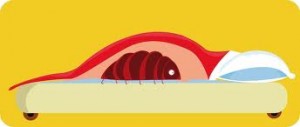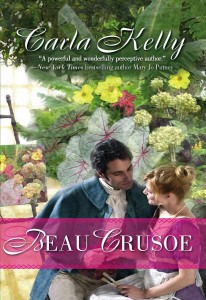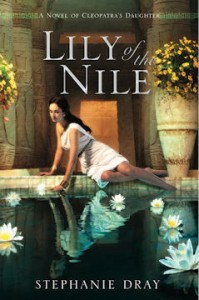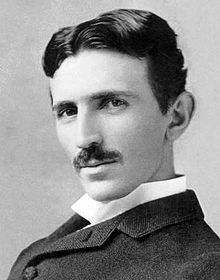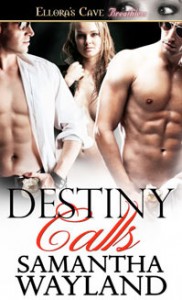One of the questions on our group interview for the HEA blog was whether historical romance is particularly suited to wonk. To which , of course, I answered yes, because the realities of the past were often so absurd by our modern standards that it’s all too easy to believe people were driven slightly insane by them. How could they not be? At the very least, some of the realities of even fairly recent history were frankly unpleasant to our modern sensibilities. The plumbing, or lack thereof, is but one example.
The fact that all this hot historical smexin’ was probably taking place in beds infested with bedbugs or at least fleas and lice is another. We’d look at that today, at that Georgian couple going at it in the bed, stopping to smack at a bug, and think, “You are fuckin’ nuts! Get the hell out of there! Take a hot shower!” But where would they go? Because all the beds had bedbugs, and most of the houses had no plumbing. So.
This got me to thinking (as is so often the case) about actual historical figures, and how some of their actual responses to life in the wonktastic past make for the best character studies ever. I’m going to follow a rabbit-trail of serendipity, here, so bear with me while I amble toward my point.
When I answered that HEA blog question, I was mostly recalling my first impression of Carla Kelly’s seminal wonkomance Beau Crusoe, which was indelibly colored by the fact that I read it hard on the heels of Richard Holmes’ fascinating book The Age of Wonder: How the Romantic Generation Discovered the Beauty and Terror of Science. One of the folks profiled at length in Holmes’ book is, of course, Sir Joseph Banks…who turns out to be an important secondary character in Beau Crusoe. This tickled the hell outta me, because as I’d been reading up to the point at which he was introduced in Kelly’s book, I kept thinking that the hero reminded me of Joseph Banks. In fact I suspected that Kelly might’ve started with Banks as inspiration.
Banks himself is definitely worth basing a wonky romance hero on. He was wealthy, unconventional, brilliant, by many accounts not too hard on the eyes, and just generally an interesting albeit weird guy. A great character…except he was a real person. Which was why, shortly before reading Beau Crusoe, I’d started taking notes on an idea for a hero based on Banks. I thought he was a perfect candidate for this, just famous enough to be well-documented, just obscure enough that I wouldn’t have people jumping all over the details I’d gotten wrong.
At RT this year I sat next to Stephanie Dray (Stephanie Draven) at one of the signings, and was fascinated to learn more about her series based on Cleopatra’s daughter. The bones of her stories are historical, but she layers in magical realism to create these novels, so I count it as fictionalization in a sense. It was just another great example, to me, of using a real person as a springboard for character development. I’m sure other examples abound, in and out of the romance genre.
The benefit here is obvious; you get a “character” who is already developed, has a backstory, has a known arc. Your plot may be built in, at least the highlights of it. You may even have some historical dialogue or writings to work with. The downside? The more you make your character recognizable as that historical figure, the more bound you are by their history. And history, as I mentioned, was full of eras in which people were batshit crazy by our modern standards, because fleas will do that to a person. So will differing cultural attitudes, of course. Stephanie mentioned that she’s had the occasional piece of negative feedback from fans disturbed by some of her character’s historically accurate/time-appropriate behavior…after all the Ptolemies were far from “nice”, and they believed they were gods. That doesn’t tend to make them relatable.
The whole “I’m a God” thing, then, makes Cleopatra’s daughter a risky choice for a heroine (though Stephanie Dray pulls it off). So does the sheer remoteness, in both time and cultural expectation, of the ancient Egyptian history. But even with something as recent and relatively familiar to most of us as, say, Victorian England, there’s a tremendous cultural divide. If you’re writing a romance, and basing your hero or heroine on a real person, I think you have to be very careful to strike a balance between the reality of that person’s life which probably included things about outhouses and institutionalized racism that none of us want to know, and the version of that reality your reader can tolerate while still accepting the character as heroic. Not an easy thing to do. This is probably why I’ve never gotten around to writing that erotic romance masterpiece loosely based on the life of Hannah Cullwick…hmm. Joseph Banks/Hannah Cullwick RPcrossover fic? Yes please!
So those are mine, Joseph Banks and Hannah Cullwick…now show me yours! What famous/infamous/obscure-but-fascinating historical figure would you like to read/write as a fictionalized hero/heroine?
[Oh, and no fair calling Tesla, I’ve got dibs on him too. He was celibate his whole life, by choice. But I’m confident I can work around that. Expect my novel featuring the hot genius inventor hero “Mikola Smesla” to release soon!
J/k.
I’d never call him Mikola Smesla.]


